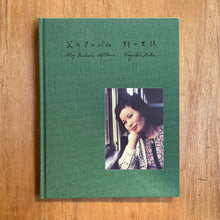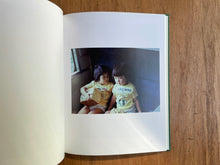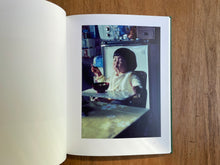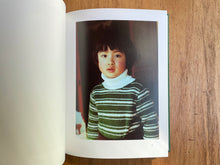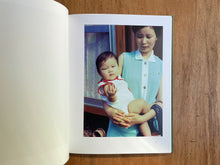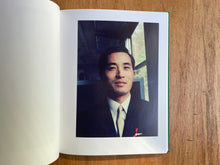
野口里佳
父から生前に渡された一冊のネガファイル。2013年に父が他界した後、野口はネガを日付順に、 暗室で少しずつ焼いていくことにしました。
「父の写真には母と私、弟と妹、父の育てたバラ、そして時折風景が登場します。被写体にぐんと近づいたものもあれば、遠くからそっと撮ったものもあります。背景にはあまり気を配ったりしません。でもその瞬間を撮りたかったのだな、という気持ちはよく伝わってきます。」
もう戻ってこないある瞬間がネガに焼き付き、暗室の中で浮かび上がる── 野口は父の視線を追いながらプリントする時間を通じて、「人はなぜ写真を撮るのか」という当たり前のことを初めて考えたと記します。
時間の隔たりを超えて伝える、写真のもつ不思議な力。本書は、その写真を見るひとりひとりの記憶に触れ、時間の旅にいざなう力を湛えています。
「父の写真は父と家族のためのとても個人的なものです。けれど私がプリントしながら味わった幸福な時間は、写真の持つ不思議な力として、誰かに伝わるのではないかと思うのです。父の視線をなぞった私の視線がどこかの誰かに伝わり、誰かを少し幸せにできるといいなと思っています。」
My father died in July 2013. My mother passed away in 1992, when I was twenty. A few years before my father died, I asked him if he had the negatives to any photographs of my mother, and he handed me a file. The whole thing was crammed full of negatives. It was only after his death that I set upon the task of sorting through it.
Those negatives, taken on a half-size Olympus PEN camera, added up to a substantial volume. I developed them in small batches in the darkroom, in the order of the dates they'd been given by my father. The photographs started from my parents' honeymoon, and went onto document my birth, and that of my younger brother and sister. The majority of the photos were ones I'd seen previously in albums, but being there in the darkroom, shining a light on the negatives and fixing the images onto photographic paper, I was surprised by how vital those images felt. At first, I only ever intended to print a few of them, then found I couldn't stop. In the end, I developed the photographs up to the point where I finished elementary school. It was a strange experience, tracing my father's perspective like that. The way that the moments seared into those negatives would never return. The experience of savouring those photos in the darkroom. I knew that my father had been interested in cameras, but I'd never thought about the question of whether his photos were any good or not. Now, though, as I went about developing his photographs, I began to think of him as a pretty talented photographer. That sense gradually morphed into a conviction.
I've been taking photographs for around thirty years. But for me, photography is a way of making artwork--my photographs weren't about capturing my family and friends. Photography, for me, meant going out with my camera to take photographs for my art practice. Now, for the first time, through the act of developing my father's photos, I started to think about the very basic question of why it is that people take photographs of things. My father's pictures feature my mother, me, my brother and my sister, the roses that he grew, and the occasional landscape. Sometimes he's right up close to his subject matter, and at others, he shoots from a distance. He doesn't pay much attention to the background. What comes across strongly in his pictures is the sense of a particular moment in time that he wished to capture. My father's photos were a personal thing, created for himself and his family. Yet I can't help but feel that feeling of contentment I experienced developing his pictures might be passed along to someone else, through the miraculous power of photography. It's my hope that that perspective of mine, tracing the perspective of my father, may be passed along to someone somewhere, and bring them some contentment.
Noguchi Rika.






